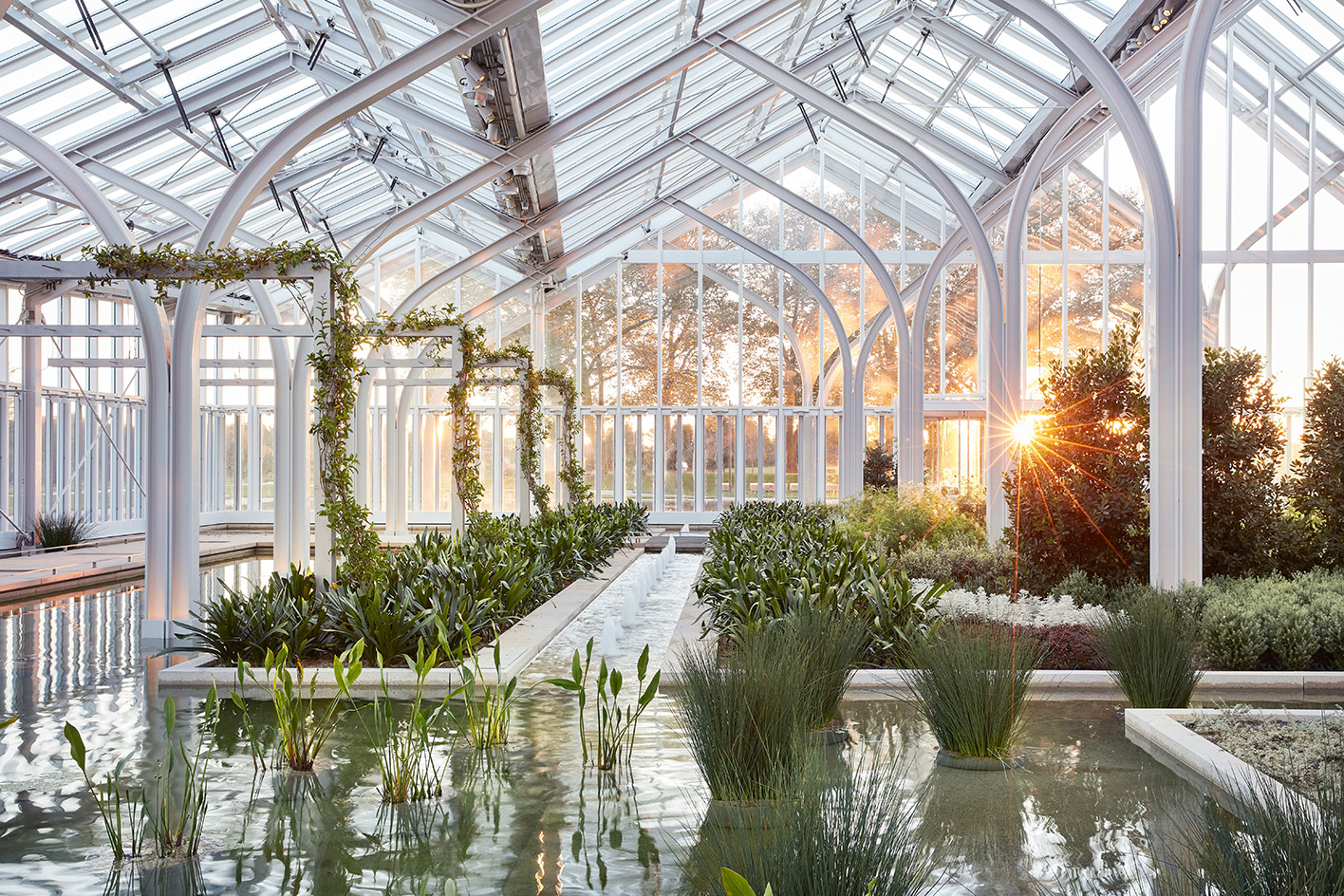
At Longwood Gardens, somewhere during the tenth minute of the after-dark, Beatles-inspired, light-and-water spectacular on show – right as 'Golden Slumbers' transitions into 'Carry That Weight' over the speaker system – a visitor may gaze at the tiny buds of flame dancing atop the 20-odd spurting fountains and wonder: What is this place?
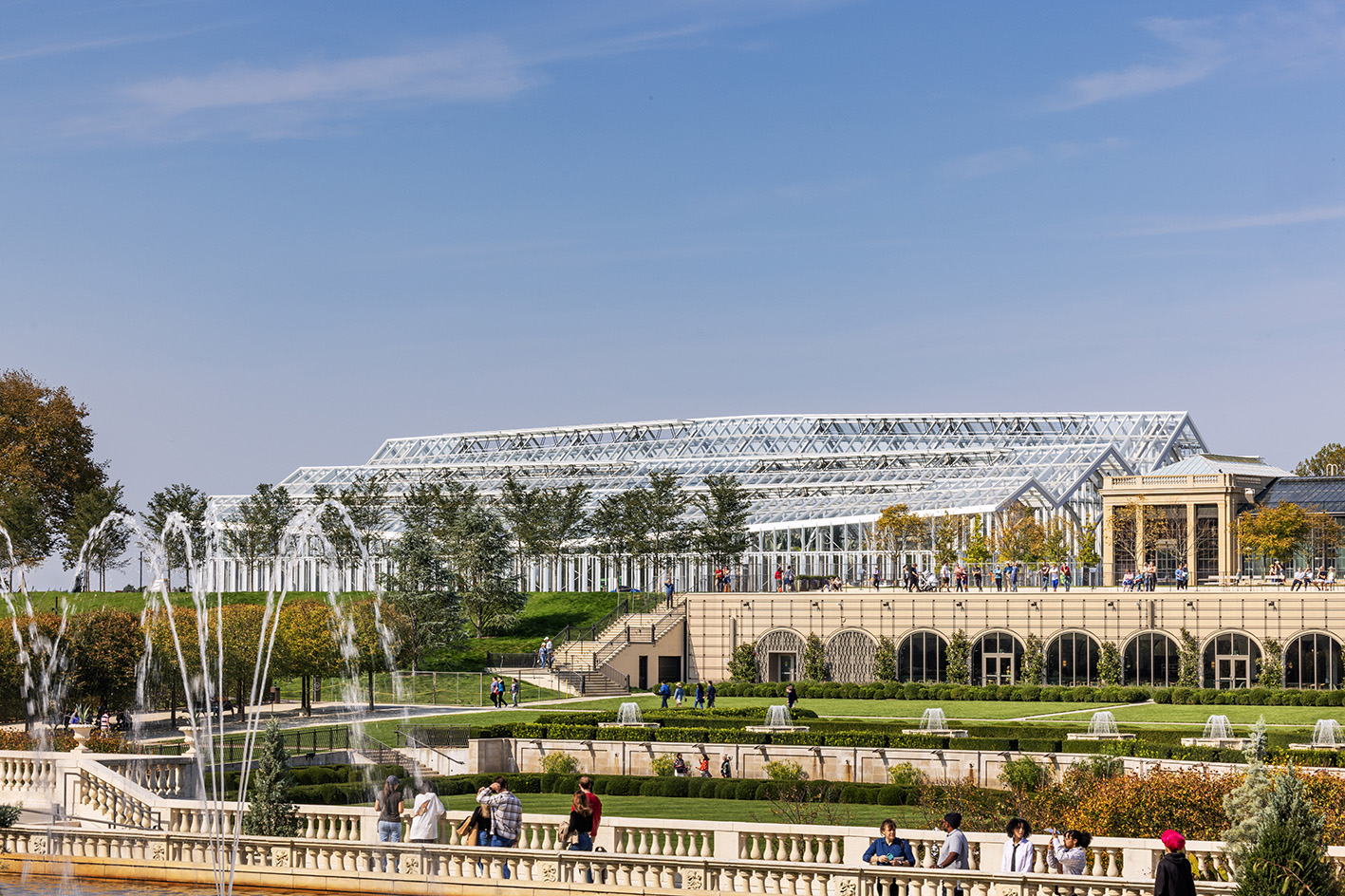
Stroll through Longwood Gardens
'You come in, and what you see first is this crystalline ridge,' says Marion Weiss. The architect – one half, alongside husband Michael Manfredi, of New York-based firm Weiss/Manfredi – is referring to what is (in daylight at least) the most eye-catching feature of the 1,000-acre expanse of Pennsylvania hills and forests, an elevated row of glazed conservatories sitting above the central fountain court.
With a striking new addition from Weiss/Manfredi, a renovated greenhouse from midcentury modernist architecture master Roberto Burle Marx, and a tuned-up, cleaned-up landscape scheme from the office of Reed Hildebrand, the glittering hilltop complex is the centrepiece of Longwood Reimagined, a comprehensive expansion of the century-old public garden aimed at connecting it with a bigger audience than ever before.

The new structures, like the nighttime musical extravaganza, are key to that effort, providing more reasons for guests from Philadelphia (less than an hour away) and Manhattan (two and a half) to make the trek to the former estate of the wealthy DuPont family.
Yet Longwood Reimagined is also more than meets the eye: hidden behind the main conservatories, Weiss/Manfredi’s new administrative and education building, The Grove, provides all-modern facilities in a crisp, light-filled box – a huge improvement on the previous on-site offices, described by Manfredi as 'the world’s loveliest Taco Bell.'
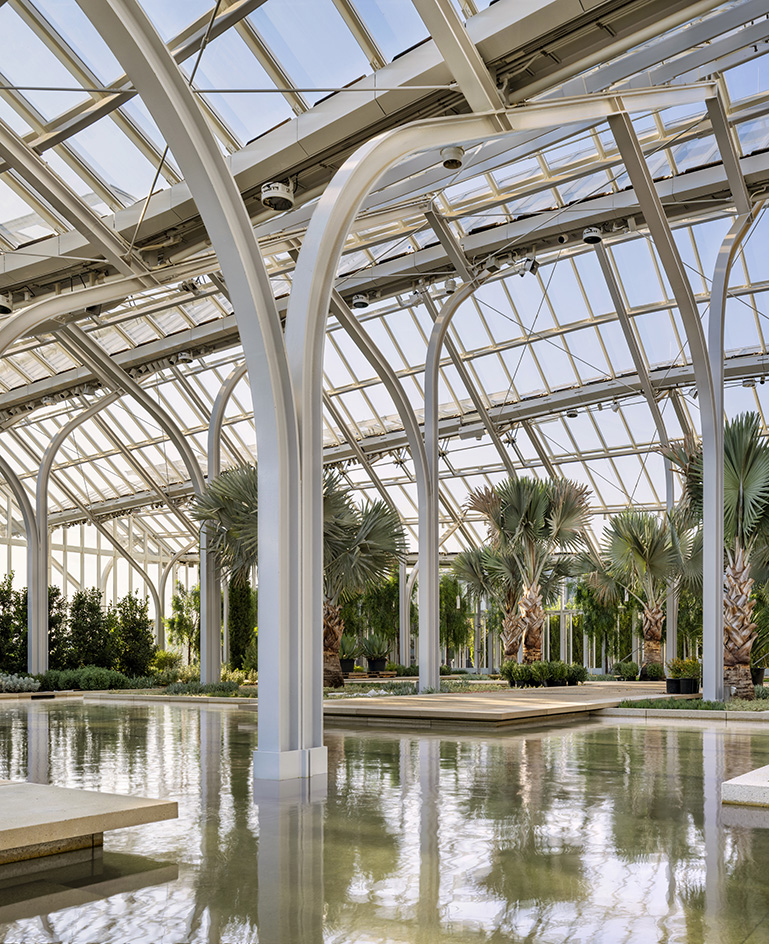
Steps away, tucked into what Hildebrand calls 'a series of hedge-rooms', a new bonsai garden will provide quiet, contemplative moments amidst Longwood’s vastness and splendour. And beneath the main ridge, concealed behind what was previously a simple retaining wall, a new underground dining concourse awaits hungry garden-goers, its vaulted ceiling holding up the massive planted terrace above.
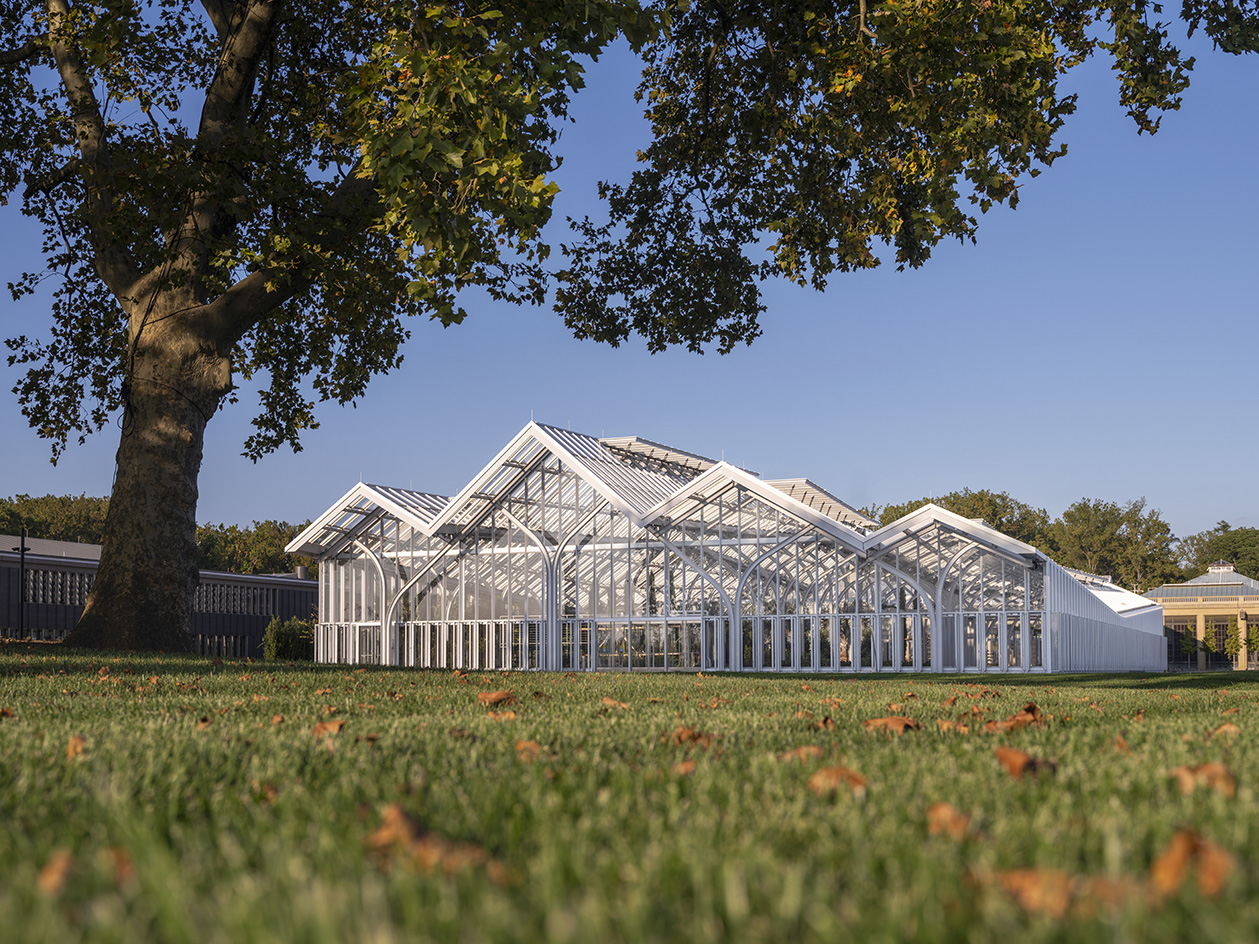
'Those vaults have to do a lot of work,' says Weiss, standing in the arcaded restaurant and events hall. The same elegance and ingenuity is evident in the firm’s West Conservatory, likewise supported by an unseen infrastructure embedded in the hillside – and yet it’s the most visible elements of the revitalised garden that count the most.
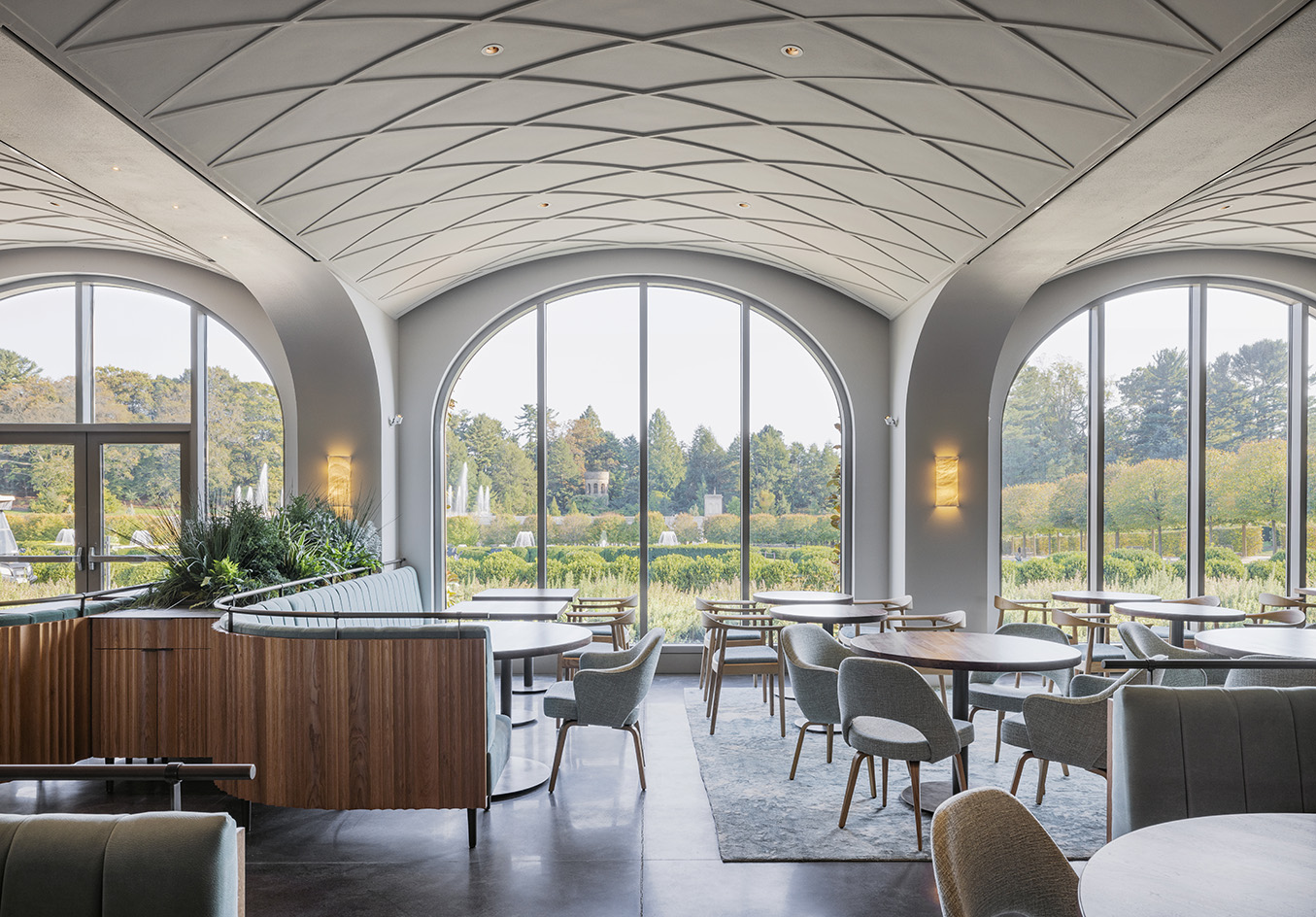
Over the maze of water-bound walkways, the architects’ new greenhouse sports an irregular, constantly shifting canopy, its tree-like piers framing views of what was once the forgotten periphery of the grounds. 'That was the whole premise,' says Manfredi. 'To open up this western section.'







